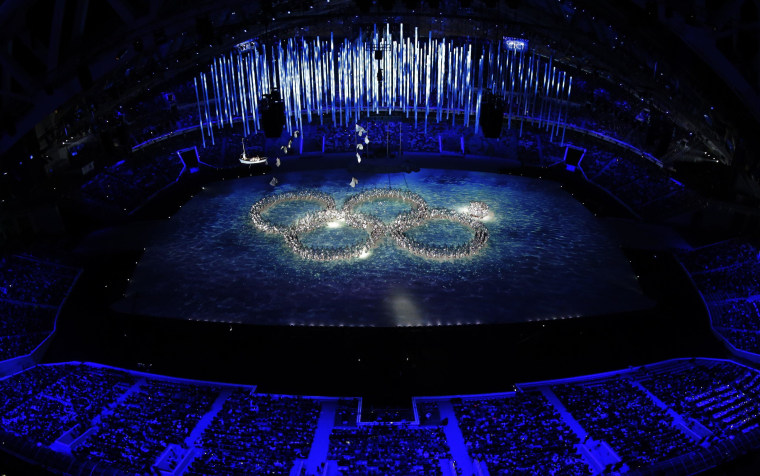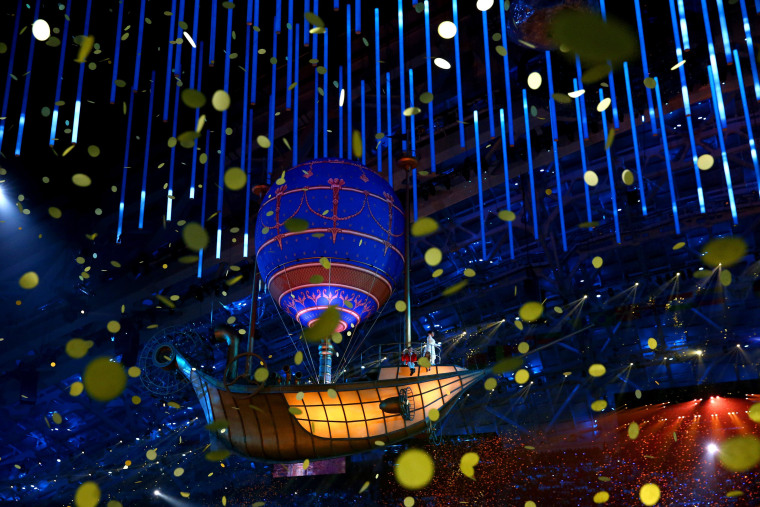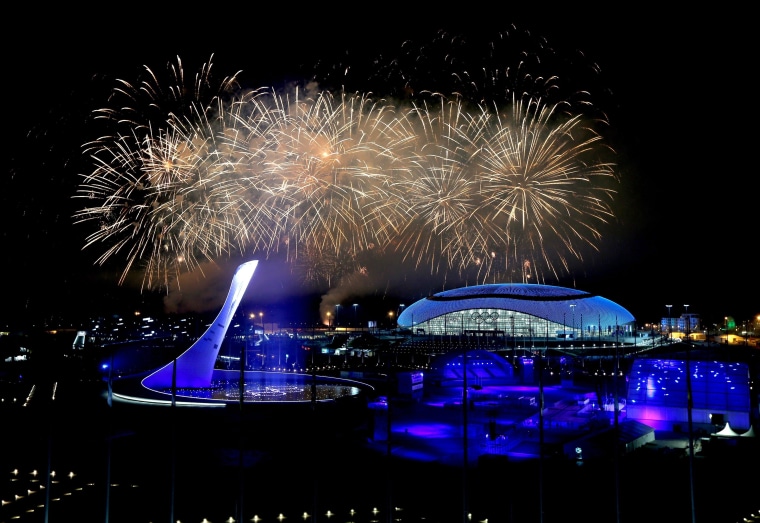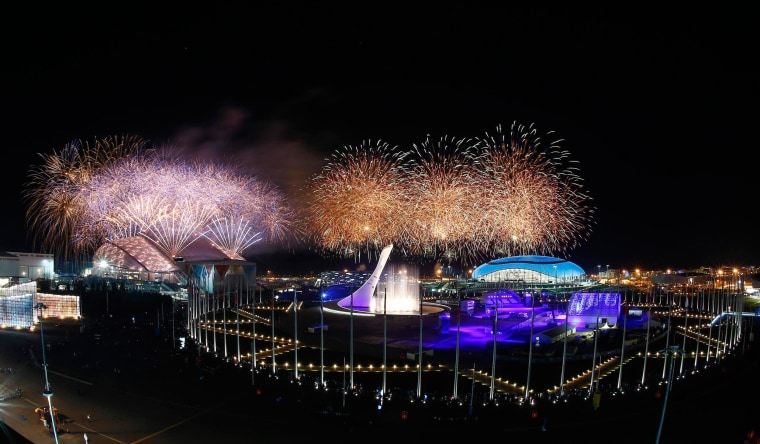SOCHI, Russia — Safely atop the medal stand, Russia put on a cultural pageant for the world, bid farewell to 2,800 athletes and drew the curtain Sunday on an expensive, controversial — and safe — Winter Olympics.
Following tradition, the Olympic flag was lowered inside Fisht Stadium and handed off to the mayor of Pyeongchang, South Korea, which will stage the next Winter Games in February 2018.
Then, as Russia’s giant stuffed-bear mascot blew out a symbolic flame inside the stadium, out went the flame in Olympic Park — and the Sochi Games were over.
“This is the new face of Russia. Our Russia."
“This is the new face of Russia. Our Russia,” said Dmitry Chernyshenko, head of the Sochi organizing committee, marking a triumphant resurgence for the host country from post-Soviet collapse two decades ago. “And for us, these games are the best ever.”

The producers had a little fun at their own expense during the closing ceremony: Dancers formed the five Olympic rings and deliberately botched the one at the far right — a nod to an embarrassing moment from the opening ceremony, when a snowflake failed to open.
In an Olympic ritual of harmony, the athletes marched into the stadium as one group, not divided by nation. The Americans, snapping selfies all the way, were led by flag bearer Julie Chu, from the silver medal-winning women’s hockey team.
The ceremony featured a tribute to centuries of Russian art, literature and ballet. The pianist Denis Matsuyev played Rachmaninoff, and later portraits of Fyodor Dostoevsky, Vladimir Nabokov, Leo Tolstoy and other greats of Russian letters dotted the stadium floor.

In a last-day press conference, Thomas Bach, president of the International Olympic Committee, showered praise on the Sochi organizers, who built a winter sports paradise from scratch on the shores of the Black Sea.
“This is amazing, what happened here."
“This is amazing, what happened here,” he said. He added that the games had transformed what was once an “old Stalinist-style city where, wherever you entered the room, you were looking at the roof wondering whether you would not be hit by something falling down.”
Russia spent more than $50 billion to stage these games, the most by any host city, summer or winter. It was an attempt by President Vladimir Putin to demonstrate that Russia was worthy of being treated as a mature, stable player on the world stage.
And Bach, the IOC chief, praised the Russian leader for “his personal commitment to the extraordinary success” of the games. But try as he might, Putin couldn’t keep politics from intruding on his moment.
An Italian gay rights activist was detained after unfurling a “Gay Is OK” banner, calling attention to Russia’s ban against the spread of gay “propaganda.” And the anti-Putin protest band Pussy Riot was not just detained but whipped by Cossacks.
Pointedly, Bach told the closing ceremony that the Olympic athletes, by competing with dignity, had set an example of “peace, tolerance and respect” for the world.
The biggest fear about the Sochi Olympics — that terrorists from the nearby turbulent Caucasus region would attack the games to humiliate Putin — never materialized. Russia’s “ring of steel” security plan held firm.
The last day of the Sochi Games was a victory lap for the host country: By both measures, Russia topped the medal table at its home Olympics. It won 13 golds, two more than the next closest country, Norway, and 33 medals overall, five more than the United States.
For the Americans, who had been expected by many to lead the medal count, Sochi was something of a disappointment. The long-track speedskaters and individual figure skaters were shut out of medals, extremely rare in both cases.

But the games themselves, which came to a close with a thunderously impressive fireworks display over the Black Sea, were a success, at least on their own terms.
"Do svidaniya, Sochi.”
“We arrived with great respect for the rich and varied history of Russia,” Bach told the closing ceremony. “We leave as friends of the Russian people. Do svidaniya, Sochi.”
